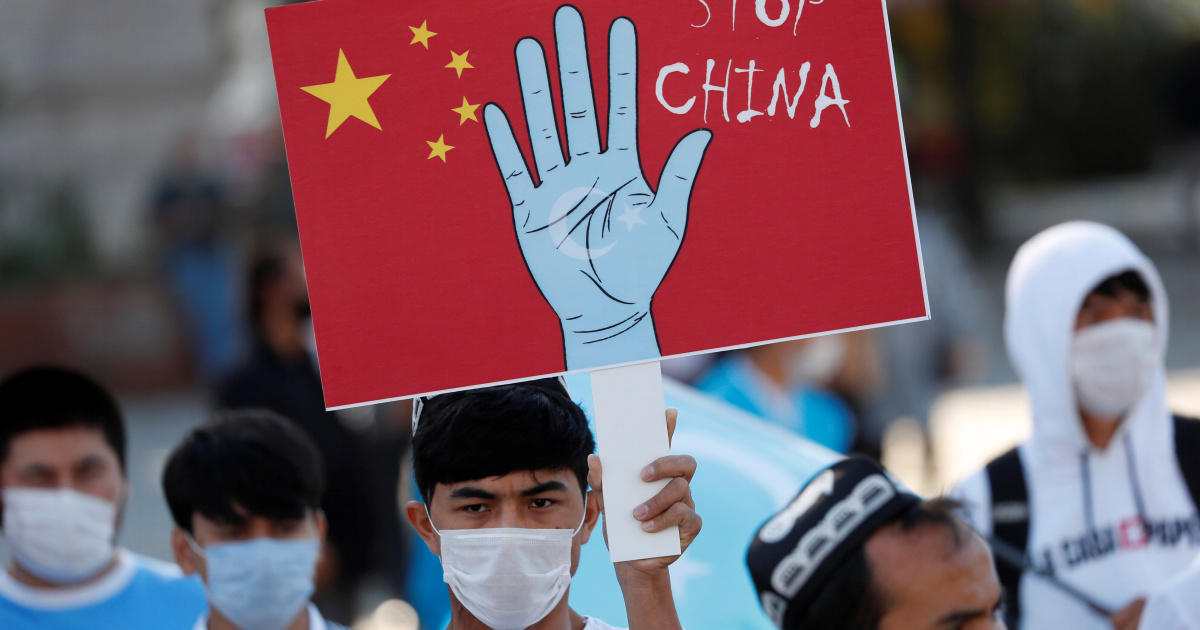For a country boasting of having built a “moderately prosperous society” this year even after the Coronavirus pandemic took China’s economic breath away, its President Xi Jinping now appears concerned about long-tackled basic issues like “common prosperity” and financial stability.
That much can be gauged by a meeting of China’s highest economic decision-making body, the Central Financial and Economic Affairs Commission, that Xi presided over in Beijing last week.
The top guns included Premier Li Keqiang, Politburo Standing Committee member and Chairman of the National Committee of the Chinese People’s Political Consultative Conference, Wang Yang, political theorist and member of the Politburo Standing Committee and first-ranked secretary of the party’s Secretariat. Wang Huning, and Senior Vice-Premier and leader of the Central Leading Group on Hong Kong and Macau affairs, Hang Zheng. It is not known if Finance Minister Liu Kun was also present but the presence of so many bigwigs attests to the sensitive and perhaps critical nature of the meeting.
The outcome, as publicised by state media outlet Xinhuanet, was a cauldron of contradictions. On the one hand, it said: “We are moving towards the second centenary goal, adapting to the changes in the main contradictions of our society, and better satisfying the people’s growing needs for a better life. We must take the promotion of the common prosperity of all the people as the focal point for the happiness of the people, and continue to consolidate the party’s long-term governance.” The question arises how can the country move to the next goal when reading between the lines suggests that the common prosperity of ‘all’ people has not been achieved.
On the other, it seemed to issue a clarification: “The meeting emphasized that common prosperity is the prosperity of all people, the material and spiritual life of the people are rich, not the prosperity of a few people, and it is not uniform egalitarianism. This clarification is followed by the rare admission of what is wrong with the economic drive, which the meeting called the “ramifications of inequality”: “[The State] must strengthen the regulation and adjustment of high incomes….reasonably adjust excessive incomes, and encourage high-income earners and enterprises to give back more to society.”
Adam Ni, Co-Editor of China Neican, a policy newsletter on China issues. contextualised the Chinese leadership’s predicament: “For context, China’s rapid development coupled with its political economy has led to rising economic and social inequality in recent decades. Despite Xi’s claim of victory over absolute poverty back in July, 600 million out of 1.4 billion Chinese are still living on a monthly income of around or belowCNY1000 (US$154).”
Growing income disparities and class differences have now become the prime concern of the Chinese Communist Party (CCP). The meeting decided to remove inequality from sectors including the financial system, tech companies, education policy, rural development, and so on. For instance, the private tuition sector in China has been shut down recently because the leadership believes it adds to social inequality by favouring only those who can afford the fees.
Neican says it is not difficult to now expect the CCP to bring every sector under scrutiny for what it fears more than economic inequality is any kind of the restlessness from below. It has firmly believed that such unrest, if not tackled at once, can fan political agitations, ultimately challenging the party and its leadership.
Ni wrote: “We should expect more sectors to come under government scrutiny, wholly or partly on the grounds of inequality. We should also expect the Party-state to ramp up pressure for rich individuals and private enterprises to “give back more to society”. My concern is this the Party-state will try to circumscribe this “giving back” as to align with its interests and values. Philanthropy with Chinese Characteristics for a New Era, anyone?”
Going by what Xinhuanet was allowed to put out, it appears that the health of China’s socialist market economy system is not as good as the CCP claims. “We must do our best to establish a scientific public policy system, and form a reasonable distribution pattern for everyone. At the same time, we must coordinate the needs and possibilities, and build the protection and improvement of people’s livelihood on the basis of economic development and financial sustainability, and focus on strengthening the construction of basic, inclusive and comprehensive people’s livelihood guarantee.” Are not these supposed to have been done years ago? Apparently not.
The meeting appears to have gone back to the basics for what it calls “all round development”: “…necessary to adhere to people-centered development concept, promote common prosperity in high-quality development, correctly handle the relationship between efficiency and fairness, build basic institutional arrangements for the coordination of primary distribution, redistribution…increase taxation, social security, transfer payments…expand the proportion of middle-income groups, increase the incomes of low-income groups, reasonably adjust high incomes, ban illegal incomes, form an olive-shaped distribution structure of large middle and small ends, and promote social equity and justice…” These are not the stages expected of a highly prosperous economy to pass through.
The meeting, in conclusion, outlined the objectives other than rectifying economic inequalities: “Efforts should be focused on expanding the size of the middle-income group: seize the focal points and implement precise measures to push low-income earners into the middle-income bracket. We must promote equalisation with respect to basic public services, increase investment in universal human capital, and improve the systems for pension, medical care assurance, discovery and assistance of those in need, and housing supply and security.”

Leave a Reply